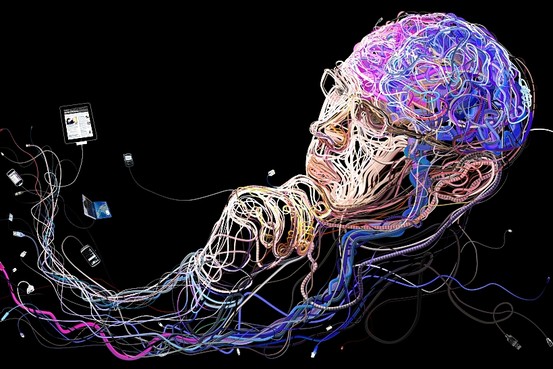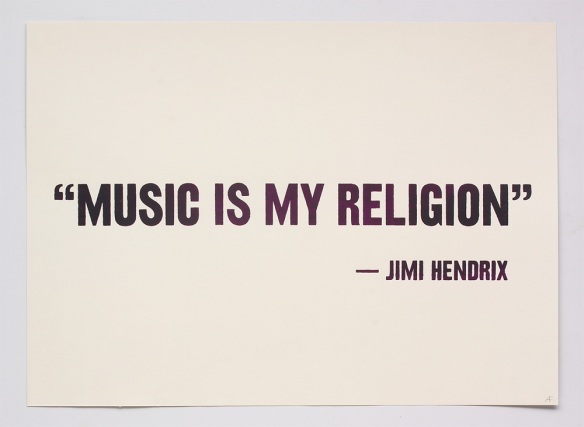Having begun holidays I can now indulge in reading the paper, which admittedly has become a newfound delight. This morning I came across something almost chillingly surreal, as secular thought sometimes touches on but doesn’t quite break into a Biblical understanding of our world.
So I was reading this article in The Sun-Herald entitled System error: how our will to live could crash the program woven by the mind of Sam de Brito. Being the secret philosopher that I am, I indulged myself in his thoughts about the nature of human life.
He began by referencing the classic “human life is nothing but an illusion” thought experiment. The brain in the jar. We are all part of a complex design by a higher being, but in this case it’s usually the highly advanced technology of The Matrix or Nick Bostrom’s “supercomputor built by an incredibly advanced civilisation”. And so de Brito, in this article, placed himself in the shoes of this ‘incredibly advanced civilisation’ and staring at his imaginary supercomputor screen set out to decide what the base properties of humanity are. And his conclusions are startlingly Biblical.
He states that “the most obvious is the will to live” which he fleshes out as “self-preservation, selfishness or self-interest”. Essentially, self-centredness. Concern for ones own welfare over anyone else’s. His second, and equally important, base element of humanity is the “will to reproduce”. It’s also interesting that he paints this in a self-centered light, he admits that he likes to think his love and protectiveness for his child as selflessness but he also recognises it is the justification for many horrific disasters in history from colonisation to cruelty and crime; just people fighting for their families. He claims “Our savage love for our own has made Homo sapiens the most powerful and destructive species on the planet in just 160,000 short years.”
Let’s just pause for a minute and actually think about what this guy is saying. Humanity is inherently self-centered and as a result, destructive. I studied James earlier this year with some of my girls and one of the verses left this unforgettable and graphic image in my mind:
“But each person is temped when he is lured and enticed by his own desire. Then desire gives birth to sin, and sin when it is fully grown bring forth death.”
James 1:29
What de Brito eloquently phrases as “our will to live”, the Bible describes as “sin”, the selfish desire that is the nature of humanity. What struck me here is that de Brito isn’t suggesting that the problem is only some particularly bad people, or that it’s dependent on one’s upbringing or environmental influences. He actually is stating that each individual human has an inherent self-centered element that is the basis of their being. This may surprise you, but Jesus taught the same thing:
“Do you not see that whatever goes into the mouth passes into the stomach and is expelled? But what comes from the mouth proceeds from the heart, and this defiles a person. For out of the heart come evil thoughts, murder, adultery, sexual immorality, theft, false witness, slander. These are what defile a person.”
Matthew 15:17-17
One of the central factors of the gospel of Jesus Christ, is that humanity is the problem, their hearts are the problem. That was the other thing that struck me about this article, de Brito seemed to think these elements of humanity problematic. I may not be a well-read as others, but I seem to think that secular thoughts tends more to encourage self-satisfaction and selfish thinking. The eye-catching phrases “How to have the best sex now”, “These Proven Mind Tricks Will Get You What You Want”, “Live Your Best Life Now” etc etc. Just read some headlines and you’ll see the trend. Rarely does someone stop and say…hold on, I think we are the problem here.
So what’s de Brito’s proposed solution to this problem? He concludes with this statement:: “This makes me wonder if the purpose of the grand experiment we call life is to see whether our species can make the leap of consciousness to override our own base coding and put others before ourselves?”. Ironically, that seems to suggest we can solve our own problem and I think just sticks us right back into our inherent “will to live” or sinful desire to solve our own problems the way that we want to.
Seeing as Jesus seemed to recognise that we had this same problem 2000 years ago, what was his solution? Firstly, the problem is defined in slightly more depth in the Bible. Sin isn’t just following our own desires, but it is rooted in our rejection of God, our Creator. That’s an element de Brito left out of his created universe, he separated them from himself. Creator and creation were distant but clearly distinct entities, de Brito didn’t include a relational element. However, the apostle Paul paints the picture like this:
“For although they knew God, they did not honor him as God or give thanks to him, but they became futile in their thinking, and their foolish hearts were darkened. Claiming to be wise, they became fools, and exchanged the glory of the immortal God for images resembling mortal man and birds and animals and creeping things. Therefore God gave them up in the lusts of their hearts to impurity, to the dishonoring of their bodies among themselves, because they exchanged the truth about God for a lie and worshipped and served the creature rather than the Creator, who is blessed forever! Amen.”
Romans 1:21-25
That is why humanity is like it is. Cut off from the creator by de Brito’s “will to live” which is essentially what the Bible describes as the “lusts of their hearts”. Ok, so now we’ve laid out the problem in more depth, what exactly did Jesus do about it?
“The true light, which enlightens everyone, was coming into the world. He was in the world, and the world was made through him, yet the world did not know him. He came to his own, and his people did not receive him. But to all who did receive him, who believed in his name, he gave the right to become children of God, who were born not of blood, nor of the will of man, but of God. And the Word became flesh and dwelt among us, and we have seen his glory, glory as of the only Son from the Father, full of grace and truth…And from his fullness we have all received, grace upon grace.”
John 1:14-17
Jesus came, and dealt with it himself. He wasn’t just a man, he was God and man. “He was in the beginning with God. All things were made through him, and without him was not any thing made that was in the world. In him was life…” (John 1:2-3). The Creator himself came into his creation to save his creatures from their inward looking and darkened hearts. This isn’t a problem we can solve by gathering our human strength and conquering it. Although, de Brito has the right idea, put others before yourself, life isn’t just about you. But neither is it just about humanity, it’s about the Creator, ‘the mind behind the mega computor’.
Except the Creator didn’t make any errors in his creating, it is the creation that corrupted itself. The base coding of “the will to live” can manifest in one of two ways: living as you want, pursuing your hearts desires, or living as you are created to, glorifying and praising your Creator. de Brito discovered that the outcome of the first option was pretty grim and maybe you think so too. Have a read of what God’s intended plan is for Creation, the details of his solution played out through history and you may find something more satisfying.










